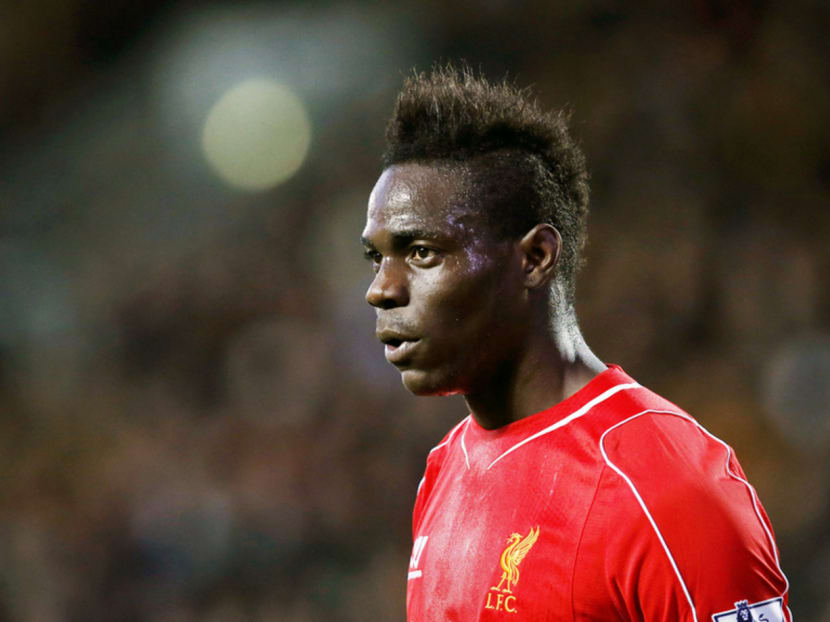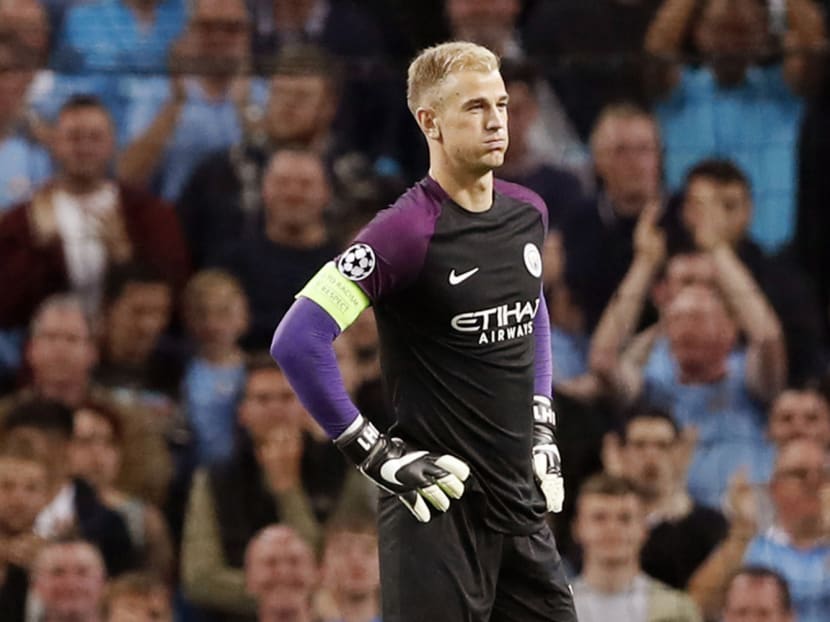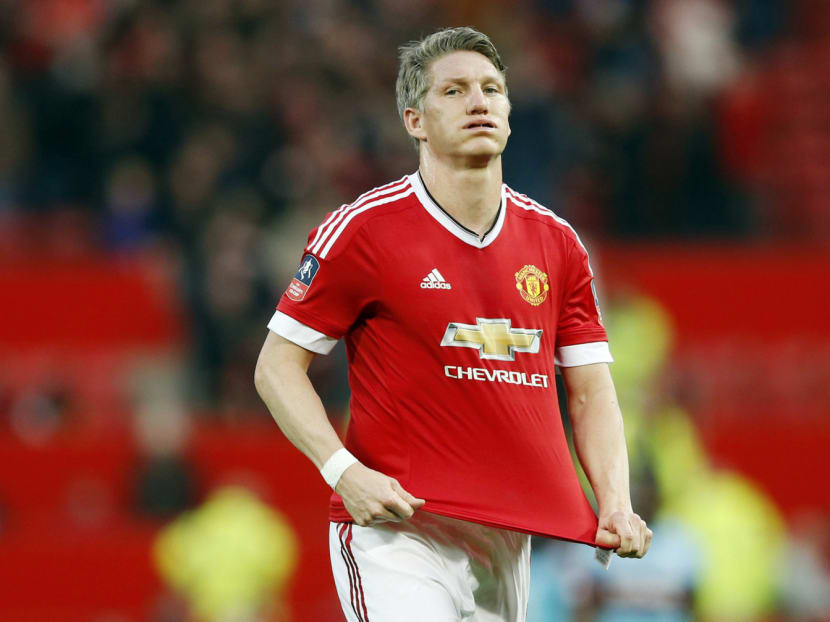EPL clubs, players trapped in dead-money relationships
LONDON — Before Liverpool’s first pre-season match in July, team manager Jurgen Klopp called Mario Balotelli into his office. The conversation Klopp needed to have with Balotelli, his enigmatic Italian forward, was an awkward one, and he wanted to have it face to face.




LONDON — Before Liverpool’s first pre-season match in July, team manager Jurgen Klopp called Mario Balotelli into his office. The conversation Klopp needed to have with Balotelli, his enigmatic Italian forward, was an awkward one, and he wanted to have it face to face.
Klopp told Balotelli that he would not be involved in Liverpool’s forthcoming friendly games. Nor would he be invited on the subsequent tour of the United States. The atmosphere was cordial, but Klopp’s message was clear: Balotelli would need to find alternate employment. The curtain had closed on his troubled time at Anfield.
A couple of weeks later, Manchester United manager Jose Mourinho had a similar conversation with Bastian Schweinsteiger.
A year earlier, Mourinho’s predecessor, Louis van Gaal, had enticed the former Germany captain to leave Bayern Munich with a salary in the region of US$245,000 (S$333,490) a week. Van Gaal, who had coached Schweinsteiger in Munich, saw him not only as the cool, experienced head he required in midfield, but as his ambassador on the field and his acolyte in the dressing room.
Mourinho saw things differently.
When the 32-year-old Schweinsteiger returned from an extended break after Germany’s run to the semi-finals of Euro 2016, he was informed that he, too, was no longer needed. Schweinsteiger was instructed to move the contents of his locker to the reserve team’s changing room, and he has since spent more time on the golf course than the training field.
As European football’s annual summer transfer window enters its final hours, both Balotelli and Schweinsteiger remain desperate for an escape.
Balotelli’s agent, Mino Raiola, has dropped hints that the French club Nice could offer his client a chance to rehabilitate his reputation. Schweinsteiger, meanwhile, has suggested his future lies further afield, most likely in Major League Soccer or China.
That both have been locked in their curious purgatories for so long, though, is instructive.
The Premier League’s ever increasing financial might means that the division’s transfer spending is set to break the billion-pound mark again this summer. Last year’s high-water mark of £870 million (S$1.5 billion) in a single window has been surpassed, and Arsene Wenger, the Arsenal manager, said last week that he was convinced that an “amazing” amount of money remained to be spent.
“There are many, many clubs in England who have a big amount of money available and have not spent yet,” he said. “Everybody is waiting. It looks like it will be frenetic. Everybody has sat on their pounds. We know they will all splash out now.”
Wenger is no different.
He has committed to spending £52 million on the Germany and Valencia defender Shkodran Mustafi and the Spaniard Lucas Prez, a Deportivo de La Coruna forward. His language, though, belied the fact that he has been something of a reluctant participant in the Premier League’s bi-annual festival of acquisition.
Klopp is the same, having criticised England’s “obsession” with transfers this month. Both men, however, are exceptions.
For the most part, the colossal sums spent by English clubs on new players are seen as something to be celebrated, evidence of the Premier League’s potency.
Every year on deadline day, the television channel Sky Sports News keeps a tally of the 20 clubs’ gross outlay in the corner of the screen. The sight of the black-on-gold totalisator creeping ever higher is treated with the sort of delight more commonly associated with charity telethons. Football treats buying as a virtue.
And yet Schweinsteiger and Balotelli — like Joe Hart, the Manchester City goalkeeper who has been unceremoniously demoted by Pep Guardiola — offer a sober reminder that there is a flip side to this unrivalled financial firepower.
“There are a handful of teams in the Premier League who are under a lot of pressure to buy players,” said Jos Mara Cruz, the chief executive of the Spanish team Sevilla. “They pay a lot of money, and so they need an immediate return on that investment: They need the players to perform straightaway. If they do not, they are already looking for a replacement after three or six months.
“But trying to offload the players who are no longer wanted is very complicated because the salaries are so high. They are not realistic for most clubs in Europe.”
Sevilla, for example, have the fifth-highest player payroll in Spain. Thanks to a run of three successive Europa League victories and qualification for the Champions League, Cruz can approve better salaries than most of his peers.
The Premier League market, though, is still too expensive.
That is certainly the case with Schweinsteiger and Hart, both of whom earn more than US$200,000 each week. Balotelli makes substantially less, but his £90,000-a-week wages still rule out a host of teams, particularly for a player so weighed down with baggage.
More troubling, even the likes of Emmanuel Riviere, an unremarkable French striker no longer in the plans at relegated Newcastle, are so richly compensated by their current teams that it is difficult to shed them. At £40,000 a week, Riviere earns almost twice as much at Newcastle as any of the clubs who might be tempted to sign him could afford to pay.
To Cruz, there are two possible solutions for clubs and players trapped in dead-money relationships.
One is China, where the country’s cash-soaked Super League clubs are prepared to meet — and even improve, in some cases — the pay on offer in England. The other is an increase in subsidised loan arrangements. The only way to take players coming out of the Premier League, Cruz said, “is to share their wages”.
That is, understandably, unappealing to Premier League owners.
Even in an age of financial excess, paying players to play for potential rivals is a bridge too far.
It may, however, be better than the alternative, which is paying them millions not to play at all. But even those solutions may not be addressing the underlying problem.
“They are paying crazy wages for mediocre players,” Christian Heidel, the longtime sporting director at German club Mainz, who is now with Schalke, said before he changed teams last year. “They will struggle to get rid of those players in the future. They buy more players every year, and the squads will become too big. They will end up spending more on redundancies than they do on transfers.” THE NEW YORK TIMES





